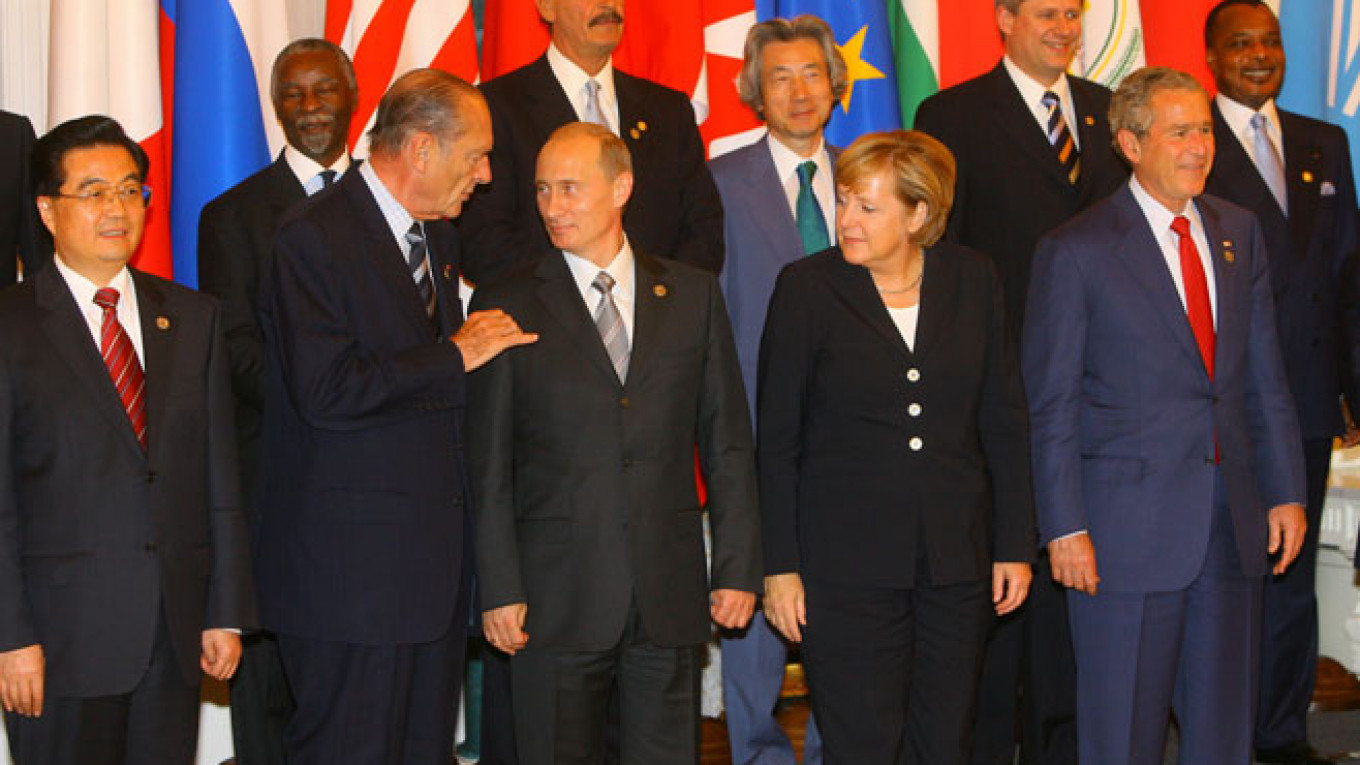Russian society cannot see itself. In fact, no individual or society anywhere can. For that you need a mirror. The mass media typically provides that function, but in Russia, the state-controlled media reports exclusively on life in other countries. They bombard the Russian people with reports on wars, crises and conflicts in Greece, the Middle East, the United States, Europe and, of course, Ukraine. Russians come to understand that governments everywhere are rife with embezzlers and that those countries are collapsing under the weight of corruption, xenophobia and leaders who are unaccountable to their people. But most importantly, the fact that reporters make no mention of such issues on the domestic front communicates the unstated message that Russia simply does not suffer from those problems.
And even if some negative subject regarding Russia does arise in the daily news, Russians are well conditioned now to the idea that the root causes of recession, inflation, the firing of doctors and the closing of hospitals — and even police brutality — always lie well beyond Russia's borders. Somebody else is always at fault. It is amazing that there was ever a time in Russian history when the Russian people saw a cause and effect relationship between the actions of their leaders and the conditions of society. However, today — as it was decades ago and centuries ago — that is not the case. Placing the blame elsewhere is an old Russian tradition. As Yale historian Timothy Snyder writes in his book "Bloodlands: Europe Between Hitler and Stalin," "Part of Stalin's political talent was his ability to equate foreign threats with failures in domestic policy, as if the two were actually the same thing, and as if he were responsible for neither. This absolved him of blame for policy failures, and allowed him to define his chosen internal enemies as agents of foreign powers. As early as 1930, as problems of collectivization became apparent, he was already speaking of international conspiracies between supporters of Trotsky and various foreign powers."
Of course, it is hardly news that the Russian people see only the countless threats and treachery of the outside world but not their own society or its political problems. But what do they see? What picture of Russia emerges every time government-controlled spin doctors take up their palettes and begin painting "reality" in very broad strokes?
Commenting on Western leaders' decision to exclude Russia from what was once the G8, well-known journalist Vitaly Tretyakov said on a national talk show: "It is an honor to be a dissident." He went on to explain that Russia is an "intelligent minority" in the world — apparently in contrast to the lowbrow mainstream majority. This is no superficial comparison, and it is complemented by the long-accepted idea that Washington and Brussels are like powerful regional Communist Party Committees, with Russia playing the role of dissident in a large authoritarian world. Ironically, according to this reverse logic, Moscow is the underdog in a struggle against a global Communist Central Committee and KGB.
The Russian media constantly depict similar "David vs. Goliath" struggles in everything from the FIFA scandal to the situation in Greece, where Greek President Alexis Tsipras is oppressed by the Western world. And of course, Russia, as a crusader for human rights, is always ready to protect the oppressed. The "central committees" in this scenario — aka Washington and Brussels — snarl and snap, but they are no longer the deadly force that they were under former Soviet leader Josef Stalin. They are more like those under former Soviet leader Leonid Brezhnev — moderately bloodthirsty, but mostly cruel and cunning. They treat Russia in much the same way as the Soviet authorities once dealt with domestic dissidents — by trying to discredit them, leveling absurd accusations against them, declaring sanctions, depriving them of their sources of funding, convicting them on trumped up charges and sending them into exile. Domestic media portray Russia as some sort of modern-day Andrei Sakharov: publishing its own "Chronicle of Events" in the form of Russia Today, deprived of its rightful recognition when it was kicked out of the G8 and sent into exile in Gorky when the West slapped targeted visa bans on government officials.
This means that those who represent and protect the regime want to be deeply respected figures in the international community. By imposing their authority through force within the country, they cannot possibly win that respect from their own citizens. That leaves only the hope of winning respect from the outside world. In all likelihood, the Soviet system deeply traumatized the current members of the ruling elite. They would like to be that "intelligent minority," but within Russia that place is already occupied by the opposition and ordinary thinking people. The authorities plan to squeeze them out of existence, themselves playing the extremely unpleasant role of "representatives of the lowbrow mainstream." The fact that Russian spin doctors portray the world as one huge, global Soviet Union reveals a great deal about their thinking.
They depict the world as one big Soviet Union and want the world to perceive them as a force for good — even while contending that only the dissident is good. They cannot understand that in their staged and highly orchestrated version of reality, no real forces for good can exist. That is strange. And it is strange that so many ordinary Russians — who apparently were not terribly traumatized by the Soviet system — so willingly watch and buy into this daily narrative on their television screens. Perhaps they, like Kremlin leaders, simply feel too saddened by their present predicament to take a look at themselves. Rather than do the hard work needed to improve the situation, leaders would rather leave those problems for their future successors to solve.
Maxim Trudolyubov is an editor at Vedomosti. This article originally appeared in Vedomosti.
A Message from The Moscow Times:
Dear readers,
We are facing unprecedented challenges. Russia's Prosecutor General's Office has designated The Moscow Times as an "undesirable" organization, criminalizing our work and putting our staff at risk of prosecution. This follows our earlier unjust labeling as a "foreign agent."
These actions are direct attempts to silence independent journalism in Russia. The authorities claim our work "discredits the decisions of the Russian leadership." We see things differently: we strive to provide accurate, unbiased reporting on Russia.
We, the journalists of The Moscow Times, refuse to be silenced. But to continue our work, we need your help.
Your support, no matter how small, makes a world of difference. If you can, please support us monthly starting from just $2. It's quick to set up, and every contribution makes a significant impact.
By supporting The Moscow Times, you're defending open, independent journalism in the face of repression. Thank you for standing with us.
Remind me later.








